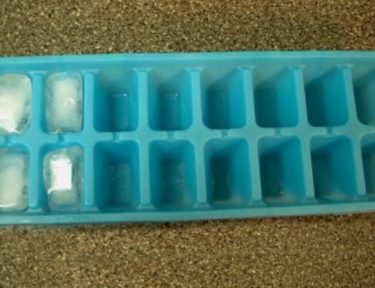You Could Be Grinding Your Teeth and Have No Idea You’re Doing It. Here’s How To Tell
Immersed in a deep sleep each night, you may not be aware of some of the things your body does on its own. One of those things is teeth grinding, and it could be wreaking havoc on your system without you even knowing.
Called bruxism, it can occur during the day or night, but is very common during sleep. Teeth grinding affects adults and children all over the world, and it’s estimated that up to 25 million Americans do some form of it when either awake or asleep.
You may or may not make noise as you grind your teeth or clench your jaw, and the movement can last anywhere from a few seconds to minutes at a time. If it’s a chronic condition, it can lead to tooth loss, cracking, enamel damage, receding gums, poor sleep, or TMJ. That’s a lot!
Most cases of bruxism are linked to stress and anxiety, but other causes include sleep apnea, breathing through the mouth, and dental problems. This video highlights some of the ways to tell if you grind your teeth in your sleep and what to do about it. Here’s a quick rundown:
-
Worn Teeth
Your dentist may notice that your teeth are worn and flattened, often the first indicator of a problem. As Dr. Jablow says in the video, your canine teeth may also show signs of wear.
-
Headaches
Clenching your teeth causes tension in the muscles of your jaw, and can cause headaches— even serious migraines. If you wake up with a headache some mornings and don’t know why, it could be due to overnight teeth grinding.
-
Sore Jaw
Jaw pain that comes and goes or is consistent could be a signal of bruxism. Your jaw may also feel tired or weak from the tightening it undergoes while you sleep. You may also have trouble opening or closing your mouth, or pain may extend in to the ear area, feeling like an earache.
Stick to the video to learn more about the symptoms of night bruxism. The good doc also gives advice on what to do if you suspect you’re suffering from the condition.
There is no cure for teeth grinding, but dentists often prescribe mouth guards for patients to wear at night. Treatment for stress, sleep disorders, and pain are also often necessary to help manage the condition for both adults and kids. To offset some of the effects of teeth grinding on your own, here are some recommendations:
- Cut down on your alcohol intake. Alcohol consumption can affect the nerves and sleep, and tends to lead to an increase in bruxing at night due to triggering muscles in the mouth.
- Watch your medications. Certain prescriptions have been shown to have side effects that can cause teeth grinding.
- Visit a physical therapist or chiropractor to help your body manage tension, strain, and pain.
- See a mental health provider to address stress or other psychological issues.
Do you think you may grind your teeth at night? Are you already aware of the condition and wear a mouth guard? If you have bruxism, what is the root cause of it?
Sources:
Dentalcare.com
Arizona Family Dental

